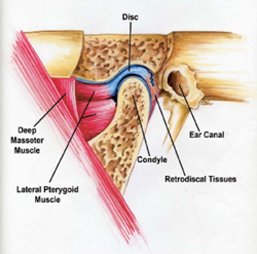Modern dentistry has come a long ways in terms of focusing on patient comfort, but the fact remains – some people suffer from a real fear of dentistry. Dental sedation, which, ironically, is often suggested for those people, is one of the procedures that can cause apprehension. The good news is, that fear is based on misconceptions and a lack of accurate information. Let’s clear up some of the misinformation.
I’ll be knocked out! I don’t want to have work done while I’m unconscious.
We’re happy to report that you’re quite incorrect.
About Nitrous Oxide
Nitrous oxide is the anesthetic used in dental sedation, commonly called laughing gas. That doesn’t sound very scary, does it? Nitrous oxide is a relaxant and it’s the perfect choice for anyone feeling anxious about dental procedures. It has been safely used in dentistry and other medical procedures since 1844.
• The effects can be stronger or weaker according to dose/preference.
• Any effects only last as long as the gas is administered, and wear off within a few minutes after exposure ends.
• You are conscious for the procedure and aware of what is happening. You’ll be able to respond to questions and express yourself if necessary.
Safety
But it’s unsafe! What happens if complications occur when I’m under the effects of nitrous oxide?
That’s where your dentist comes into the picture.
Nitrous oxide is safe for the vast majority of patients. However, your dentist will ask about your medical history to see if there are any underlying conditions that can be affected. Your dentist’s expertise ensures that any medical concerns are taken into account. Patients who are pregnant, for example, are not good candidates for the procedure.
There’s no special preparation required when using nitrous oxide, unlike some other sedation procedures.
Who should use Nitrous Oxide?
Nitrous oxide is gentle, and it has been used with beneficial effects in many situations.
• Where there is a real fear of dental procedures, drilling, and/or needles. A phobia can’t be explained away, even by reason, and there’s no need to force yourself to submit to that fear without some help.
• Long, involved procedures can be made much more palatable.
• Where there is a strong gag reflex, the relaxing effects can be very helpful.
• If you have a very small mouth and jaw, and prolonged procedures can result in pain and soreness.
• In patients who have a resistance to local anesthetics.
Looking for advice on dental sedation any other area of your dental health? You’ll find the answer at Dr. F. Keshavarz Dentistry in Brampton, ON.
If you’re looking for a well-regarded and highly skilled dentist in the Brampton area, make an appointment with Dr. F. Keshavarz Dentistry. We’re conveniently located in Brampton, ON at 40 Finchgate Blvd., Suite 121 in the Bestgate Professional Center. There’s plenty of free parking and our Brampton dental office is fully wheelchair accessible and LGBTQIA+ friendly.
Email or call Dr. Robert Alexrad at (905)-791-3867. Visit our website to learn more about our dental services.







